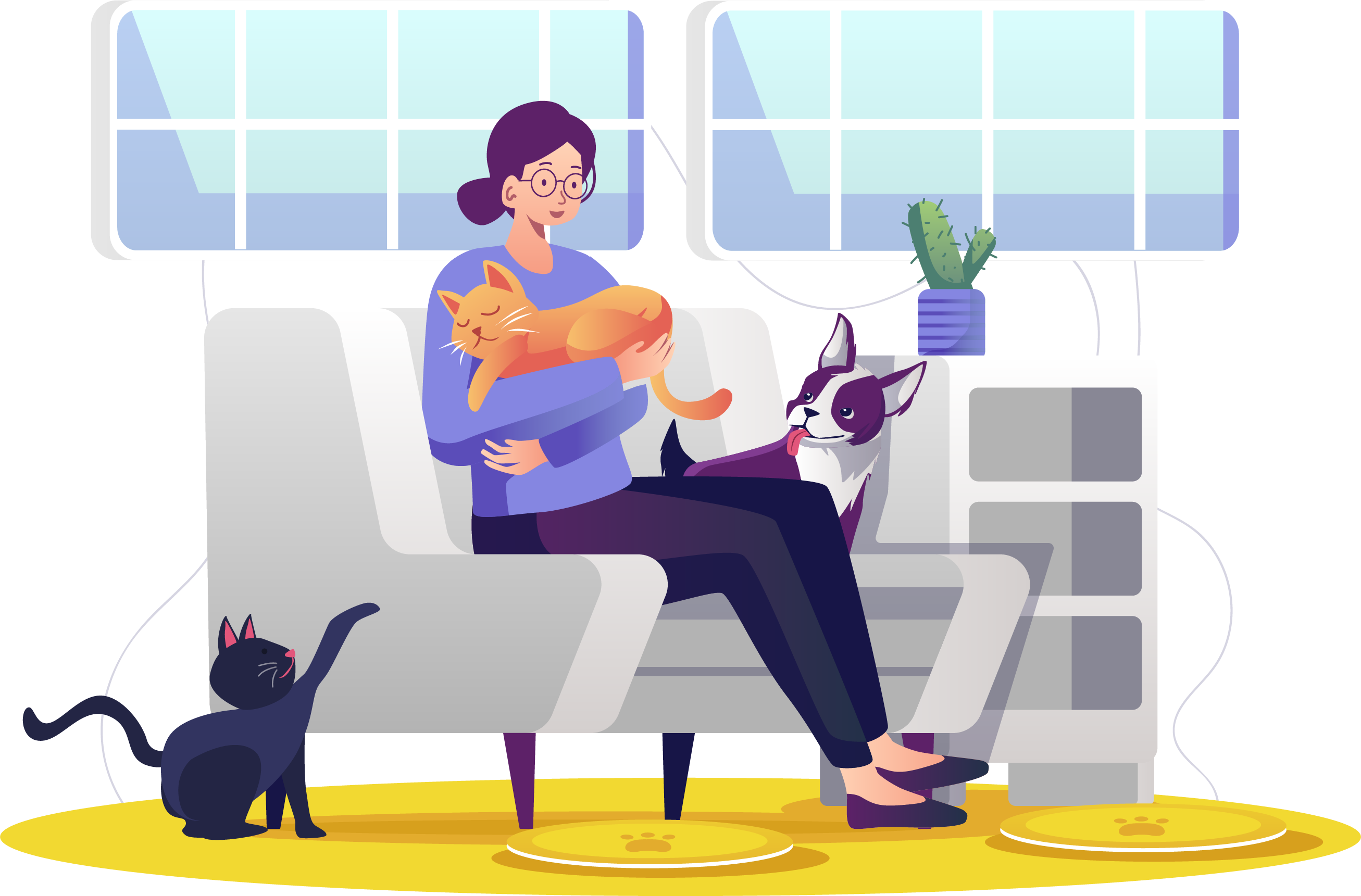According to AVMA latest statistics there are roughly 62 million dogs and 37 million cats that are pets in America. 99 million small animals and that doesn’t include horses, rabbits, small mammals, birds and reptiles considered exotic pets. That number represents the “cared for and owned pets”, now consider all the shelter animals and feral cats that exist and you start to get a real picture of the demand that veterinary professionals and their support staffs are dealing with daily.

Are there enough veterinary professionals?
There are over 30,000 animal hospitals, clinics, and emergency care centers in America, and there is an expectation that these facilities will increase by 5% through 2027. However, not all clinics are created equal. You have the independently owned clinics that make up 85% of the veterinary industry, while the rest are corporate owned or private equity-backed groups known as “consolidators” of clinics throughout the U.S. Some of those corporately owned clinics are owned by very large well-capitalized companies such as Mars Veterinary Health( owned by the Mars Family of candy fame) who also owns VCA Animal Hospitals, Blue Pearl Veterinary Partners, and Banfield Animal Health. Some other large corporately owned animal health hospitals are Alliance Animal Health, and National Veterinary Associates (NVA), to name just a few.
Working in these clinics are roughly 118,624 Veterinary medical associates, mostly in small animal commonly referred to in the industry as the companion animal space. For the most part, companion animals are considered dogs, cats, exotic pocket pet animals like guinea pigs, ferrets, rats, and others. Horses are also considered “companion” pets, but for the purposes of this post, we will concentrate on dogs, cats, and small mammals for reference. Of that number of 118,000+ veterinarians, only 13,500 are active “board-certified” veterinary specialists.
There are 41 specialties recognized by the American Veterinary Medical Association, and of all the specialties, the largest group is the American College of Veterinary Internal Medicine, having 3,121 members. Good news if your pet has diabetes, heart disease, kidney dysfunction, cancer, allergies, or gastrointestinal issues. Some of the other specialties are dermatology, dentistry, zoology, avian, and surgery to name a few. Not all veterinarians need to be board-certified in order to diagnose and treat your pets of these diseases. Most veterinarians are known as General Practitioners with a wide array of skillsets to address the needs of your pet.
You may be asking, “What is a board-certified veterinarian?” Simply put, a board-certified veterinarian has completed extensive post-graduate training, education, and examination within a specific specialty. This specialty is their focus and usually their passion, with the intention to provide the very best health care possible to address those ailments that our pets present with from time to time. Having supported many a wet lab (training session) mock exam ( in dental), I can assure you that completing and attaining a Diplomate status is no easy feat. It is rigorous, stressful, time-consuming, but if successful (from what I’m told), very rewarding.
The Reality…
As positive as this all seems, there is growing concern within the industry. Why? If you are a pet owner, you need to know that there is a severe shortage of veterinarians, veterinary technicians, and support staff, and it’s only getting worse. Many of you are experiencing this firsthand. You recognize something’s not right with your pet; you take him to the vets or call to get an appointment, and the clinic has no open time slots. It’s frustrating for sure, and it’s not that the vet or his staff doesn’t want to see your pet; it’s just that they are swamped. They are pulling long hours and many days in a row. As in human medicine, if you feel your pet needs emergency care, you need to consider an animal emergency center like BluePearl or MedVet or any of the other local emergency care centers in your area. There are many, but be aware they are short-staffed and busy as well. It’s the reality.
So many people adopted or purchased a pet during the pandemic,( and that is a good thing), but what that created was a pent-up demand for pet care during a time when operating protocols had to be streamlined and adjusted, creating a backlog, especially with routine wellness checks. Now that things are getting back to normal, there’s an increase in animals that need care.
You need to understand that your pet will get seen for their wellness checks, and routine care, it just may not be as convenient as it used to be pre-pandemic. Emergency appointments complicate work schedules due to the urgent matter of the situation and this may cause delays in appointments and timeliness of your pets care. If you have an emergent situation consider getting your pet to an Urgent Care Center( more communities are seeing an increase in these clinics) or an Emergency Care hospital as soon as possible.
What does this mean for you…
In short, it means that your pets appointment may not be available at the most convenient time. It means that if there is an emergency(like a pet has swallowed a bone or your kids socks)your appointment may be delayed a few minutes. It means the front desk gals maybe overworked and rushed, and more to the point. It’s not an excuse, it’s the reality. So try to be understanding and a bit more kind, because they deserve it.






